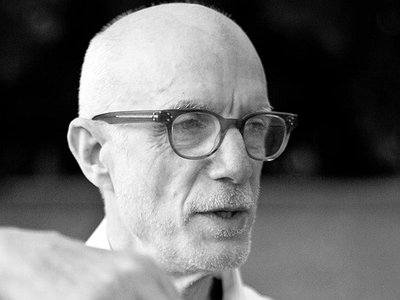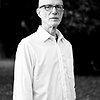Part 3
With more and more musicians creating than ever and more and more of these creations being released, what does this mean for you as an artist in terms of originality? What are some of the areas where you currently see the greatest potential for originality and who are some of the artists and communities that you find inspiring in this regard?
Technology has made many very wonderful things possible. More music is not one of them. This is quite a harsh statement and one that perhaps many people may disagree with. Playing an instrument and writing music are completely separate talents and I believe that with rare exceptions other than popular music they are rarely combined in one individual. Even popular music, which I enjoy, had to undergo a technical simplification to allow these talents to be combined in one or several individuals. Technology has provided the means by which these talents may be combined by anyone.
I think that electronic music has the most interesting possibilities for creating a new music. There are a number of sound artists who are heading in this direction however their work may be so idiosyncratic that it cannot be expanded upon and made into a new collective music.
This is also a time where everything is being recirculated to an almost claustrophobic degree; with more and more music being made there is less and less originality. This is counter intuitive but perhaps accurate.
How would you define the term “interpretation”? How important is it for you to closely work together with the artists performing your work?
This is a great question, having been on both sides of the process of making music. It is my experience that the music will speak to the musician in a personal way and regardless of the composer’s intention; it may be wise to pursue that path unless it is completely contrary. I think dynamics and the other more basic elements can be discussed with a compromise in mind, however the interpretation itself really requires selecting musicians who have a sense or interest in what your intention is. Miles Davis was famous for having very little dialog about what was to be played. As my experience with “classical musicians” is more limited, I can only answer based on the CDs we just recorded. I found that everyone involved instinctively knew what the music was about and delivered the correct interpretation. Sandro Ivo Bartoli’s performance of my piano work is a perfect example of this. We had a brief conversation about the work and he delivered an epic, profound reading of the notes. There was really nothing I could have told him that would have helped him. He got it even though it was completely out of his normal repertoire.
The effect of a piece doesn't merely depend on the performance of the musicians, but also on the place it is performed at. How do you see the relationship between location and sound? In how far do you feel the current system of concert halls is still the right one for your music – or for contemporary music in general?
While I agree in principle with the statement I would also respectfully disagree. If the musicians are fully committed to the music, then the space can be controlled and co-opted by the musicians’ willingness to move the audience through their own involvement in what is being played. Obviously this would not necessarily hold true in a train station or an airport, however I have managed to engage the audience with my own work at some of the worst venues in the world simply by being engaged myself and willing to share that engagement.
I have very little experience with concert venues and contemporary music, however music was not meant for larger venues and there should be an attempt to use venues that are small enough to create a space for the quiet and nuances of contemporary music. For my own work I would like to see it played without amplification including microphones in smaller spaces. Of course, I would be partial to churches or other places of worship.
What's your view on the role and function of music as well as the (e.g. political/social/creative) tasks of composers today - and how do you try to meet these goals in your work?
This is another question with which I may find myself at odds with the current view. I think a very small number of artists have been successfully able to bridge the gap between art and politics to emerge with a work of quality which also provides a moral and philosophical statement which is relevant to the time it is created. Mostly I find work based on topical issues and politics heavy-handed and moralizing without any real value as art other than as a curiosity of their times. I believe the artist should speak for themselves and if this somehow naturally aligns with the feeling of many people then the work will carry and support that shared feeling. However the whole emphasis on sexual orientation, gender, geographic origin, and identity politics is to my mind annoying and produces very little useful work either politically or artistically. I am currently reading an anthology of American woman writers based on the notion of Regionalism. The stories are incredibly moving, however the introduction with its insistence on current politics and points of view are a distraction and detract from the work. A composer should participate in their own times both as an individual and an artist keeping in mind that there may be no point where they intersect. That is okay and work that is moving will be useful and of value regardless. I work to take the listener somewhere and, as I have mentioned, that somewhere is of their own choosing and does not require my moral and ethical judgment being imposed upon them.
Do you have a musical vision that you haven't been able to realize for technical or financial reasons – or an idea of what music itself could be beyond its current form?
At the moment I feel current with all my dreams and visions. I would like to write something opera-esque based on the Hesse story ‘Augustus’. This would require technical and financial resources perhaps beyond my current abilities. I have begun a script and narrative however I am slowly finding my way composing the necessary vocal material in a contemporary style. Also, it would require a large financial investment to rehearse and record such a big project.
At the risk of sounding naive, I am not entirely sure that I understand extending the forms of music as I believe it happens only rarely and most probably either by accident or through genius. I think anyone who proceeds with this as their goal may be kidding themselves.






